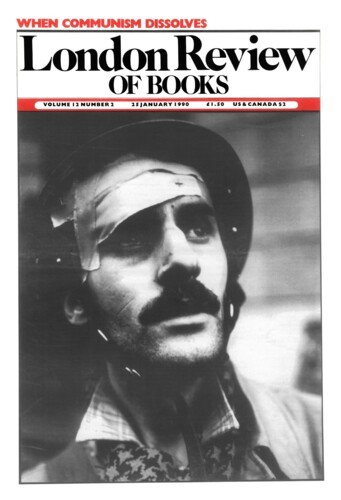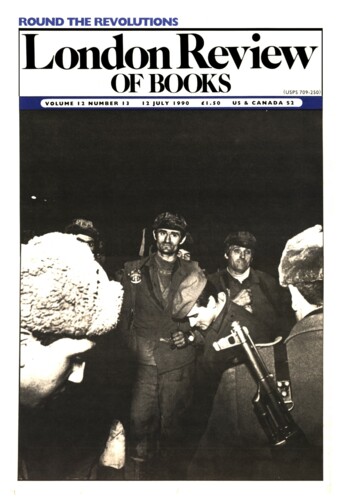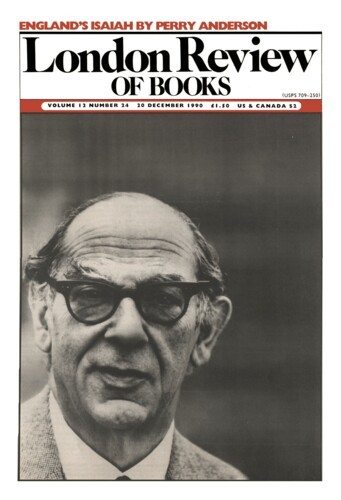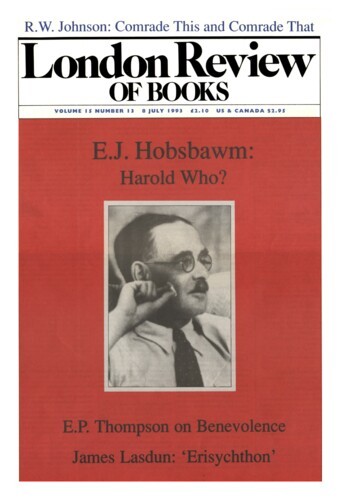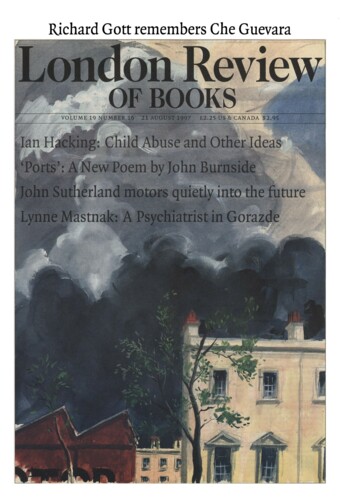After Ceausescu
Owen Bennett-Jones, 25 January 1990
‘Same brothel, different whores’: the words chosen by Valentin Gabrielescu of the re-created National Peasants’ Party to express his opinion of Romania’s provisional government, the National Salvation Front. And he’s by no means alone in distrusting Romania’s new rulers. From the lunch tables of the elegantly-appointed restaurant in the Writers’ Union to the raucous student meetings all over Bucharest, the Front, as it calls itself, attracts puzzled enquiry, suspicion and, as often as not, angry derision. The Front’s detractors believe that the revolution has been stolen by Ceausescu’s apparatchiks from its rightful owners: the students who fought for it and the country’s handful of uncompromised dissidents. The Front’s problem is that it has attracted too much support. Police chiefs and factory managers all over the country simply declared themselves to be in favour of the new government and have stayed in place demanding that the same old forms be filled and the same hours worked. So the Front is increasingly perceived as a body that will reform the Communist system rather than overthrow it. In fact, it’s too early to say what ideology it has.
